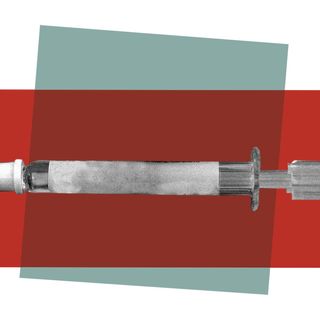Researchers have just found out that people living with chronic pain may undergo changes in their brain chemistry affecting their ability to regulate emotions, especially negative ones.
Reportedly, chronic pain affects, at the very least, 10% of the global population. For India, the prevalence is almost double at 19.3%. Moreover, around one in ten people develop some form of chronic pain each year, with the figure even being as high as one in every four in some parts of the world.
“Chronic pain is more than an awful sensation. It can affect our feelings, beliefs, and the way we are,” said Sylvia Gustin, a neuroscientist and psychologist at the University of New South Wales in Australia, who also co-authored the study.
Published in the European Journal of Pain, a new study shows that chronic pain can considerably bring down the levels of certain chemical messengers in the medial prefrontal cortex of the brain that helps people regulate emotions.
Upon conducting brain scans for 48 participants with and without chronic pain, the researchers noticed significant contrasts in levels of GABA, an “inhibitive neurotransmitter in the medial prefrontal cortex,” Gustin explained, adding that scientists “have discovered, for the first time, that ongoing pain is associated with a decrease in GABA… In other words, there’s an actual pathological change going on.”
GABA, basically, helps people “dial down” their emotions. “A decrease in GABA means that the brain cells can no longer communicate to each other properly. When there’s a decrease in this neurotransmitter, our actions, emotions, and thoughts get amplified,” Gustin noted.
Related on The Swaddle:
How I Have Sex: ‘My Chronic Pain Feels Like a Flaw That I Have to Compensate For’
As for why that happens, experts believe the neurological correlation between how our brains process pain, and how they ensure emotional well-being, may be at play. “Pain and emotional well-being are deeply intertwined due to various connections in the brain. The pathways implicated in pain utilize similar neurotransmitters as the pathways implicated in mood and anxiety disorders,” Leela Magavi, a psychiatrist from the U.S., who wasn’t involved in the study, told VeryWellMind.
As such, when the brain has to deal with chronic pain, people’s ability to modulate emotions like anxiety, or even cope with mood disorders like depression, decreases. “[W]hen the brain experiences long-lasting and intense pain signals, neurons in the prefrontal cortex may diminish, leaving less neuron activity for people to use to modulate intense emotions, such as depression and anxiety,” explained Desreen Dudley, a clinical psychologist, who wasn’t part of the team behind the study.
In addition, the impact of chronic pain on other aspects of physical health like “problems with sleep, fatigue, concentrating, memory, and appetite,” according to Dudley can probably worsen one’s mental burden. Other research has also found that chronic pain affects one’s memory and ability to concentrate.
Further, chronic pain can disrupt one’s professional and personal life, too, severely impacting their mental health in the process of making them feel frustrated and excluded. In fact, past research suggests that people living with chronic pain are three times more likely to develop symptoms of depression or anxiety.
While the findings are disheartening, researchers believe they can be used to inform better approaches to deal with the mental impact of living with chronic pain. “The brain can’t dampen down these feelings on its own, but it is plastic – and we can learn to change it,” Gustin says.
In fact, Magavi has some recommendations for people living with chronic pain, to reduce its impact on their emotional well-being. “I recommend making peace with the diagnosis, joining support groups, and advocating to raise awareness,” she suggested, adding that “connectedness and altruism can truly be healing for many people.”




